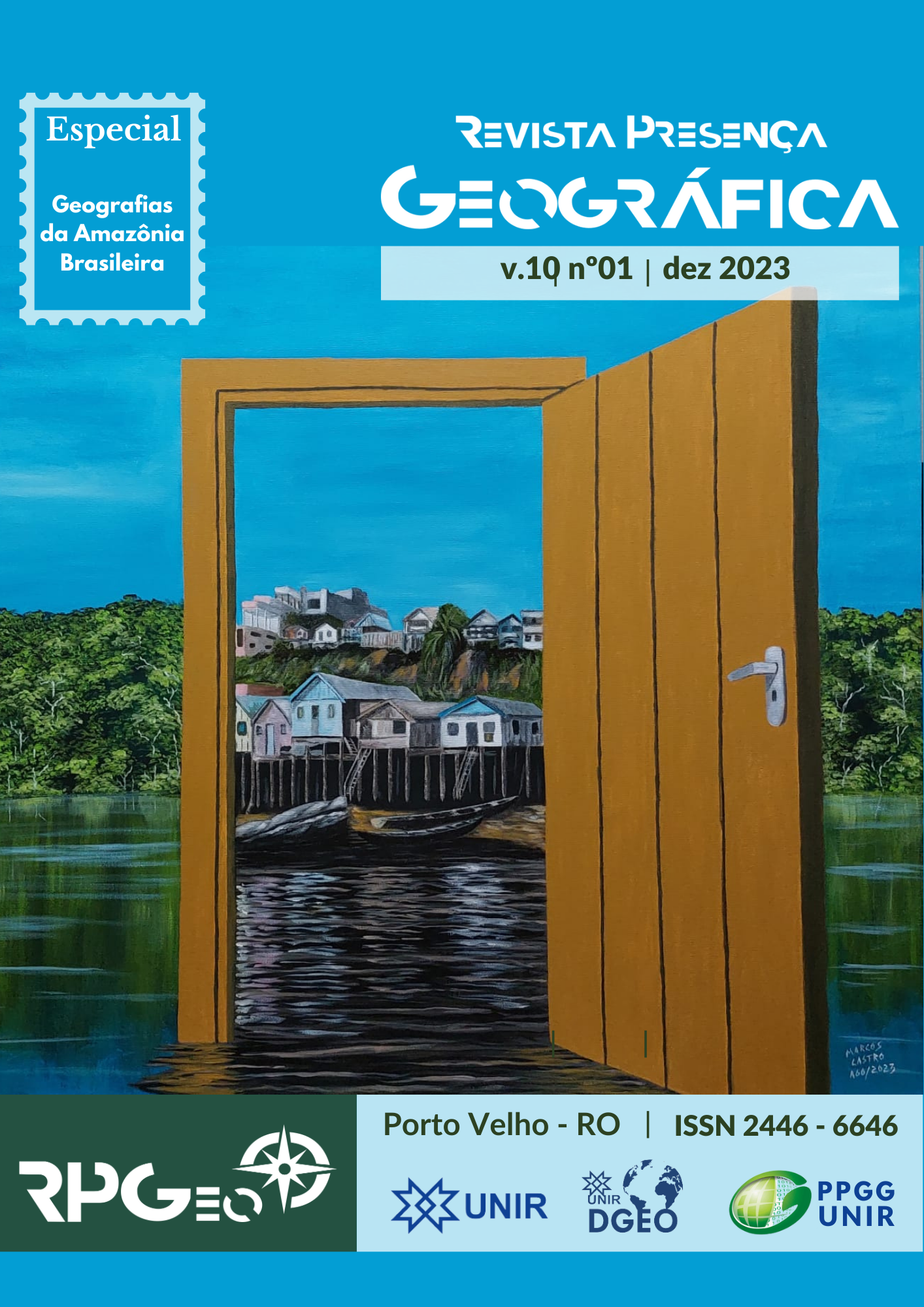EXPERIENCE REPORT: THE PROBLEM OF GULLIES IN THE GRANDE VITÓRIA NEIGHBORHOOD AND THE CONSTRUCTION OF THE COLORTECA
DOI:
https://doi.org/10.36026/rpgeo.v10i1.7324Abstract
This article seeks to carry out an experience report about school practices with the use of active methodologies through the presentation of a successful activity. The activity was carried out at Fé e Alegria do Amazonas Foundation in the application of Geography classes for Elementary School II students about soils, and included steps such as bibliographical deepening, field research and construction of productive material: the color library, a panel with samples of different types of soil. The importance of this analysis lies in understanding the possibility of expanding the spaces in which the teaching-learning process can be developed, as it seeks to demonstrate the viability of non-formal spaces. Through qualitative bibliographical research, this work found that the practices carried out in non-formal spaces allow the student to connect with the space and the consequent development of their critical sense, since they identify themselves as individuals in their locality and in the world. Given the above, non-formal spaces are understood as an instrument for linking students to their reality. In this way, by including the programmatic contents in their daily lives and making them visualize this in their experience beyond a blackboard in a classroom, it makes the student not only identify with, but also become an active subject in the classroom. Knowledge construction process and in the space to which he belongs and feels part of it.
Downloads
Published
Issue
Section
License
Copyright (c) 2023 Rejane Ferreira da Silva

This work is licensed under a Creative Commons Attribution-NonCommercial-NoDerivatives 4.0 International License.
This work is licensed under Creative Commons Attribution-NonCommercial-NoDerivatives 4.0 Internacional license.
Authors who publish in this journal agree to the following terms:
- Authors retain the copyright and grant the journal the right to first publication, with the work simultane ously licensed under Creative Commons Attribution-NonCommercial-NoDerivatives 4.0 Internacional License that allows the sharing of the work with acknowledgment of authorship and initial publication in this journal.
- Authors are authorized to assume additional contracts separately, for non-exclusive distribution of the version of the work published in this journal (ex, publishing in institutional repository or as a book chapter), with acknowledgment of authorship and initial publication in this journal.
- Authors are allowed and encouraged to publish and distribute their work online (ex.: in institutional repositories or on their personal page) at any point before or during the editorial process, as this can generate productive changes, as well as increase the impact and the citation of the published work (See The Free Acess Policy).












